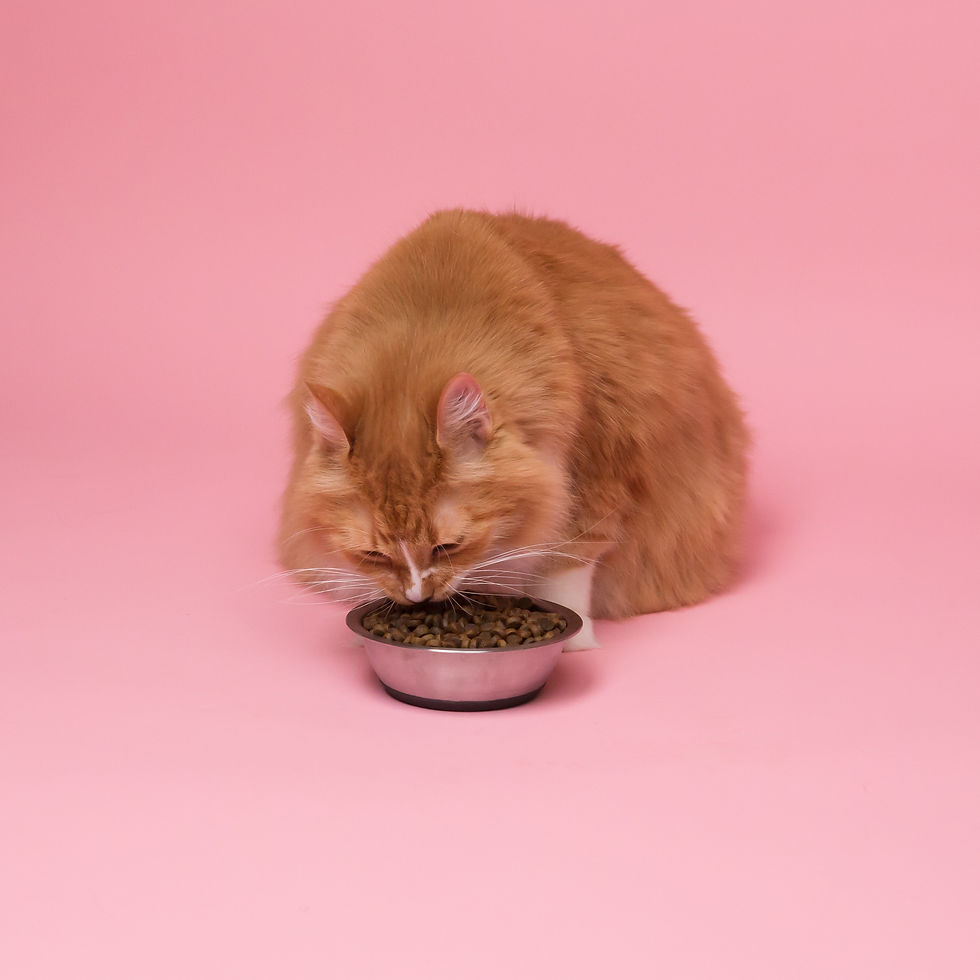Cats Eat to Live
- Danielle

- Jul 24, 2023
- 2 min read

Cats are creatures of habit. They tend to follow the same routines every day including when and how much they eat. Cats do not become “bored” with food, so if they stop eating or are eating less, there is an underlying cause that can be potentially serious. Some of the reasons a cat will stop eating include:
1. Illness and/or pain: Cats often hide signs of illness and loss of appetite can be an indication that something is medically wrong. Cats are predators, so their instinct is to hide illness, so they do not appear weak. Once your cat shows obvious signs of illness, it hasn’t been well for five days or more. Dehydration is the dominant cause once your cat is acting sick.
2. Stress/Anxiety: Changes in a cat’s environment like moving or construction, new pets, or changes in the daily household routine cause stress. Some cats are more adaptable than others, but significant environmental changes often cause cats to hide and not eat well.
3. Vaccinations or medications: A recent vaccine can cause a mild decrease in eating that can last up to 48 hours. Medications like antibiotics disturb the gut biome creating nausea.
4. Food preferences: Just like people, cats are particular about the taste and texture of their food. Cats will refuse to eat if they simply don’t like the food offered.
5. Spoiled food: Cats reply on their sense of smell to indicate if their food is safe to eat. If their food doesn’t smell “right”, they will refuse to eat it.
6. Environmental factors: If your cat is too hot or cold, their eating will diminish. If their feeding area has been recently changed it will also cause a change in their appetite.
7. Surgery and/or medical procedures: Cats recovering from surgery or medical procedures may experience a temporary loss of appetite.
8. Dietary changes: A sudden change in your cat’s diet can cause them to refuse food.
If your cat has stopped eating or has decreased their food intake, it’s essential to take it to your vet immediately. Sudden or prolonged loss of appetite can lead to serious and potentially deadly health issues. Your vet will need to perform a physical evaluation and diagnostics to determine the underlying cause of your cat’s illness. A lack of food causes the body to use up reserve energy and once depleted, your cat’s body begins to dehydrate. Don’t wait until your cat is very sick. A sick cat requires more diagnostics and urgent care, which may cost you more money, especially if you must go to a pet emergency room. Catching problems early is the most cost-effective option that provides the best possible outcome for your cat.



Comments